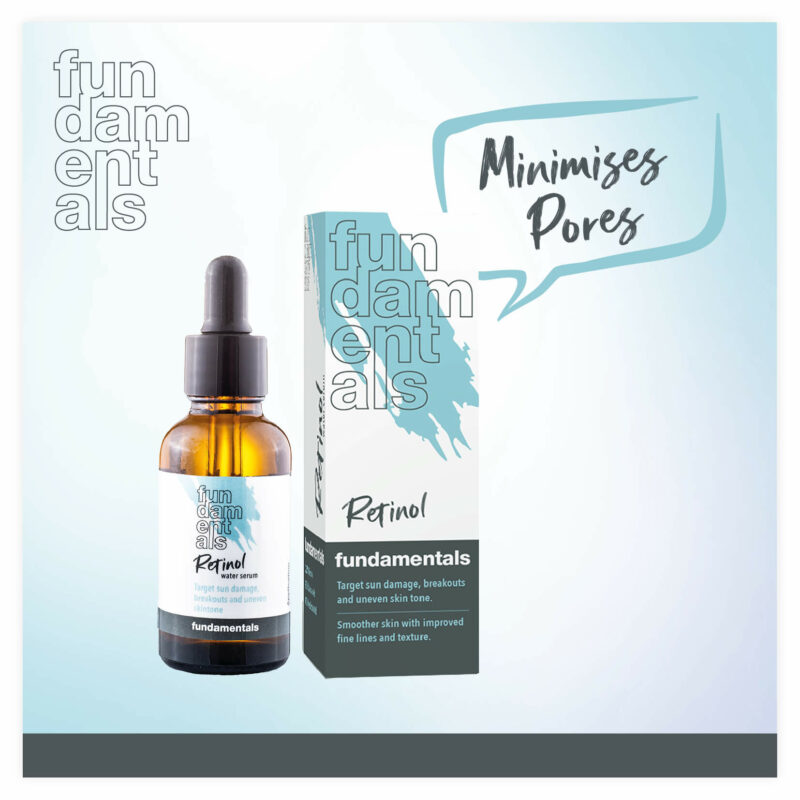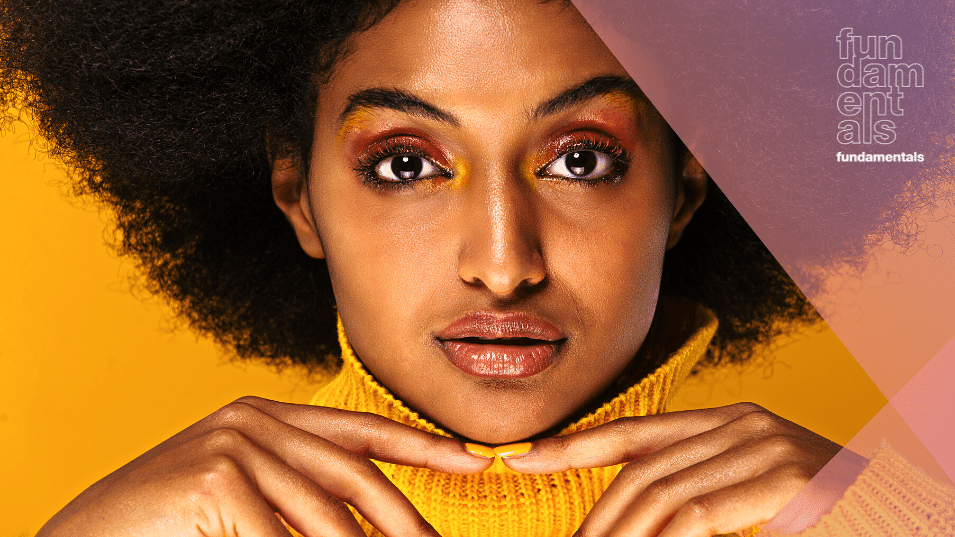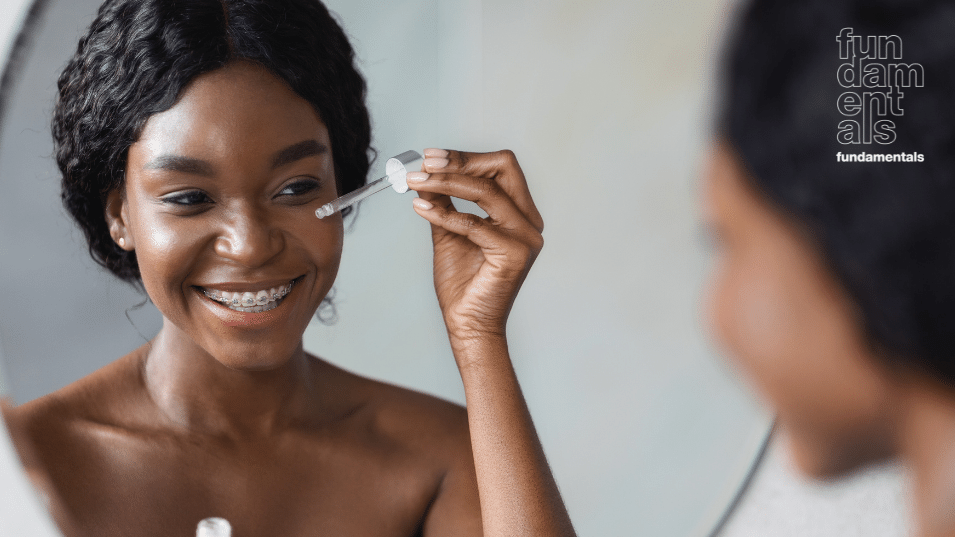If you remember when Justin and Britney were still a thing, it’s time to start using retinol. This golden standard of skincare ingredient isn’t just for anti-ageing, the vitamin A derivative also targets those annoying breakouts for a clearer, poreless complexion. Plus, it has exfoliating properties to improve elasticity and give you a gorgeous glow. Yup, this holy grail skincare ingredient can quite literally do it all. Here’s everything you need to know about retinol serums…

What is retinol, anyway?
Retinol is a synthetic derivative of vitamin A, the group of fat-soluble vitamins commonly found in carrots, eggs and sweet potatoes.
Now here comes the slightly confusing part, but fear not – you don’t need a science degree to determine which type of retinoid to use. Let’s break it down to clear up any confusion.
Vitamin A is composed of two parts: retinoids and carotenoids. Retinoids stimulate the production of collagen, hyaluronic acid and elastin, which is what reduces visible wrinkles and large pores, heals acne and fades hyperpigmentation. Retinol (along with Retinyl Palmitate and Retin-A) is one form of a retinoid.
There are a few different forms and strengths of retinoids, each targeting a different concern, making them ideal for a variety of skin issues.
- Isotretinoin – Strongest form and needs a doctor’s prescription
- Retinoic Acid – Tretinoin, Adapalene, Tazarotene
- Retinaldehyde (AKA as Retinal)
- Retinol
- Retinyl Palmitate – This is NOT the same as Retinol. This is an ester of Retinol making it a very different vitamin A to Retinol.
Fundamentals Retinol 0,3% is a low to moderate strength, making it an ideal strength for anyone to use.
Benefits of retinol
Retinol is one of the few skincare ingredients that comes with an absolute guarantee to work, considering its medically and scientifically-proven ability to speed up the skin’s cycle. Think of retinol as that girl who talks the talk and walks the walk with zero B.S. promises. She spits the facts, and brings the receipts every time. And that’s why we love her.
Here are some of the best reasons to incorporate retinol into your nighttime skincare routine:
- Prevents wrinkles and smoothes existing fine lines
- Brightens dull skin by exfoliating the skin at a cellular level
- Regulates oily skin and reduces acne and breakouts
- Fades dark spots, sun spots and hyperpigmentation over time
Side effects of retinol
As with all potent skincare ingredients, retinol has its, shall we say, quirks. You can most likely expect to experience a bit of dry, tight, red, flaking and sensitive skin when first introducing it into your skincare routine. It’s best to start slowly to let your skin adjust. Add it into your nightly routine one to two times per week for the first week and then increase it gradually, depending on how your skin reacts.
Top tips for using retinol
- Allow retinol to absorb in your skin before applying another product on top.
- *Loudspeaker voice* Use sunscreen daily! Retinol causes your skin to become more sensitive to the sun.
- If you’re pregnant or are considering pregnancy, check with your OB GYN or doctor before starting any retinol treatment.
- Dont layer retinol with your vitamin C serum, as used together they can over stimulate your skin. Use Vit C in the morning, and retinol at night
Slow and steady wins the race
If you’re looking for an overnight treatment to give you instant results, you won’t find it in retinol. Slow and steady wins the race here – it takes consistent, dedicated use of retinol to see results. But trust us when we say it is well worth it! After 6 weeks (best results are after 3 months) your skin will be thanking you.



